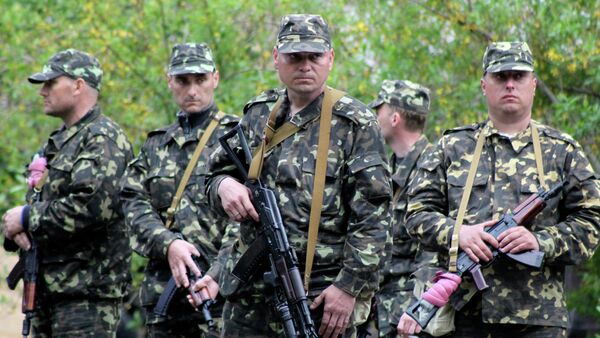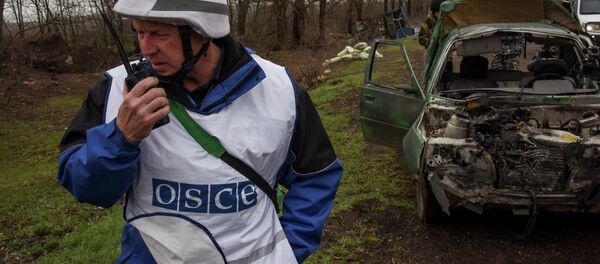WASHINGTON (Sputnik) — UN peacekeepers’ deployment in Eastern Ukraine will likely lead to more war, the Ron Paul Institute for Peace and Prosperity Executive Director Daniel McAdams told Sputnik.
“Judging from history, an international peacekeeping force makes more war likely, not less likely,” McAdams said on Tuesday.
On Monday, Russian Foreign Minister Sergei Lavrov said in a meeting with envoys from Kiev, Berlin and Paris that Moscow is ready to discuss Kiev’s request to send peacekeepers to Ukraine's Donbass region.
McAdams noted that further internationalization of the situation in Eastern Ukraine will open the door to more "trigger" events.
“Given the history of international ‘peacekeepers’ in places like former Yugoslavia, it is surprising to hear the Russian foreign minister seeming to open the door to a mission in Eastern Ukraine,” McAdams noted.
“In former Yugoslavia, the OSCE Kosovo Verification Mission (KVO), after a ‘trigger event’ became a NATO-led peacekeeping force (KFOR) which became a full-out NATO assault on Serbia,” he explained.
McAdams claimed this happened because peacekeeping missions are often packed with intelligence officers and operatives.
“His assignment to head the OSCE mission was not because of his peacekeeping skills, but because of his war-making skills. His selling the story of the Racak ‘massacre’ as a trigger event leading to the NATO war should be seen as the triumph of his mission,” McAdams said.
The trigger event involved the mass killing of Albanians in Central Kosovo’s village of Racak in 1999. Serbian security forces were accused of killing the civilians. The incident became the major factor in starting the NATO operation against the then Federal Republic of Yugoslavia.
Some experts have alleged that the Racak accusations could have been false, and the dead bodies were of killed soldiers who were dressed in civilian clothes. Walker visited the site shortly after the incident and judged the incident as being “the massacre.”
On Monday, Lavrov voiced hope that Kiev’s statements regarding the necessity of placing peacekeepers in Ukraine's Donbass region was not a tactical trick intended to distract from the agreements that have been achieved already.
Moscow has questioned the need for international peacekeepers in Ukraine since the Organization for Security and Co-operation in Europe (OSCE) was given the responsibility of monitoring the situation in the country under the February 15, 2015 Minsk deal.
OSCE observers focus on overseeing the Minsk deal implementation, particularly on the conflicting sides’ adherence to the February 15 ceasefire, and the withdrawal of heavy weapons from the line of contact between Kiev forces and independence fighters.
Last month, OSCE Secretary General Lamberto Zannier said it was not clear whether a UN peacekeeping operation in Ukraine would be more successful than the present OSCE mission.


